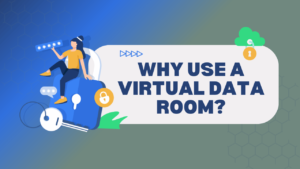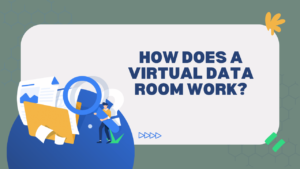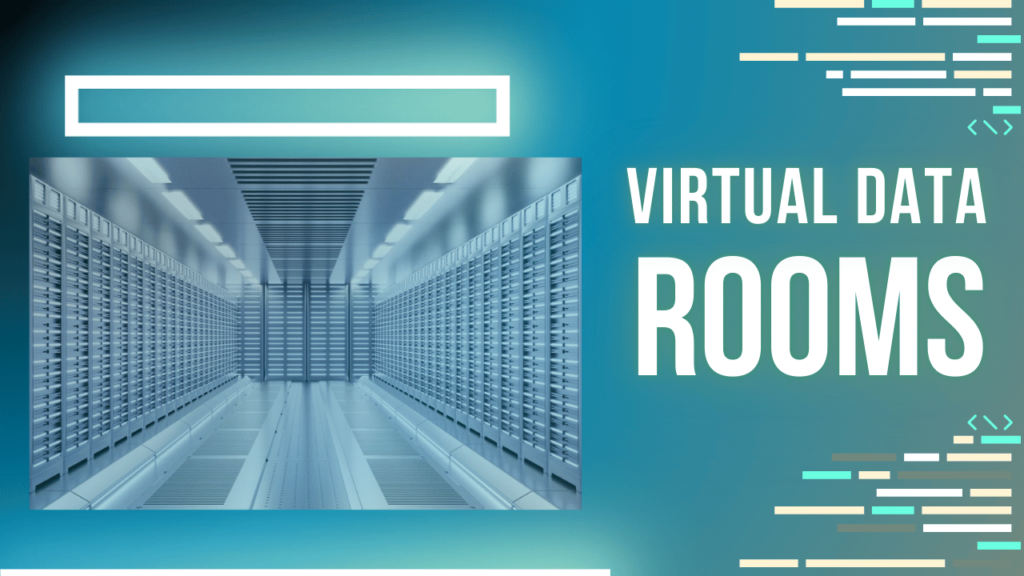Virtual data rooms are transforming the way businesses handle sensitive information. Imagine a secure online space where crucial documents can be shared seamlessly across the world—a place that combines high-level security with easy access. That’s what virtual data rooms (VDRs) are all about, and they’re changing the game.
According to Gartner, the global market for virtual data rooms is expected to grow significantly, driven by the rising demand for secure document sharing in industries like finance, legal, and real estate. If you’re dealing with mergers and acquisitions, investor communications, or legal proceedings, a VDR isn’t just useful—it’s essential. But how do they really work? And what makes them better than the traditional ways of sharing information?
This guide dives into the nuts and bolts of virtual data rooms—what they are, how they work, and why more businesses are embracing them. Whether you’re new to the concept or looking to understand their real benefits, this article will give you everything you need to know.
What is a Virtual Data Room?
A virtual data room is a secure online repository used to store and share sensitive documents during business transactions. Think of it as a more advanced and secure version of cloud-based data storage. Unlike simple cloud storage, virtual data rooms offer features tailored for business transactions like mergers and acquisitions, legal document management, and due diligence processes.
VDRs ensure that confidential information exchange happens with the highest level of security. They provide encryption, multi-factor authentication, and detailed permissions to control who can view or edit documents. This level of security is crucial for industries that handle a lot of sensitive data, such as finance, legal, and healthcare sectors.
Why Use a Virtual Data Room?

1. Security and Compliance
One of the biggest reasons to use a virtual data room is its advanced security features. Confidential information needs to be protected, especially during financial transactions or mergers and acquisitions. VDRs offer multiple layers of security, including data encryption, secure document sharing protocols, and the ability to set granular permissions.
Additionally, virtual data rooms help ensure regulatory compliance. Many industries, such as healthcare and finance, are required to meet strict regulatory standards for data protection. Using a VDR means businesses can store and share sensitive information while complying with regulations like GDPR, HIPAA, and other data privacy standards.
2. Efficiency in Business Transactions
Virtual data rooms are designed to facilitate efficiency in business transactions. During the due diligence process, for example, a VDR allows stakeholders to access documents from anywhere at any time. This reduces the need for physical meetings, printing, or courier services, making the process much faster.
By providing a centralized location for all necessary documentation, VDRs also improve communication among involved parties. Whether it’s investor relations or corporate governance, having all essential documents in one secure location makes collaboration easier.
3. Cost-Effectiveness
Virtual data rooms can save significant costs in the long run. Traditional methods of sharing documents often involve physical rooms, printed materials, and travel expenses. By using a virtual data room, you eliminate these costs. Additionally, the automation features of VDRs help in managing document permissions, file versioning, and tracking user activities, further saving time and reducing administrative overhead.
Features of a Virtual Data Room
To fully understand the benefits of virtual data rooms, it’s important to look at their key features:
- Document Security: Virtual data rooms offer encrypted file storage and sharing, ensuring data security solutions for confidential information.
- Access Control: You can set user permissions at different levels, controlling who can view, edit, or download documents. This ensures that only authorized individuals have access to critical data.
- Activity Tracking: Most VDRs come with audit logs and activity tracking features that provide insights into who accessed which documents and when. This level of transparency is particularly important during legal proceedings or regulatory compliance audits.
- Customizable Workspaces: VDRs can be customized to fit the needs of different industries. Whether it’s legal document management for law firms or managing financial transactions for investment bankers, the flexibility of VDRs makes them suitable for a variety of uses.
How Does a Virtual Data Room Work?

A virtual data room operates as a secure online repository where users can upload, store, and share documents. Unlike simple online storage solutions, VDRs are designed specifically for the complexities of corporate and legal transactions.
Step-by-Step Process:
- Upload Documents: The first step is to upload all relevant documents into the VDR. This could include financial statements, contracts, corporate governance documents, etc.
- Set Permissions: Administrators can set specific permissions for each document. For example, during a merger, one party may only be allowed to view certain files but not download or edit them.
- Access and Review: Users with the appropriate permissions can access and review documents. The system keeps track of every action taken—who accessed a document, what changes were made, and when.
- Collaboration: Multiple stakeholders can collaborate on documents in real-time, making the due diligence process and other business transactions seamless and efficient.
Applications of Virtual Data Rooms

1. Mergers and Acquisitions (M&A)
One of the most common uses of virtual data rooms is in mergers and acquisitions. During an M&A transaction, both parties need to review a vast amount of confidential information. A VDR makes this process secure and efficient, allowing potential buyers to access the data they need without compromising security.
2. Legal Proceedings
Law firms use virtual data rooms to manage legal document management, ensuring secure document sharing during litigation or other legal matters. With features like activity tracking, VDRs provide an extra layer of security and transparency, which is crucial when handling sensitive case information.
3. Financial Transactions
Investment banks and financial institutions use VDRs to manage financial transactions, share due diligence documents, and ensure the secure exchange of information between stakeholders. The efficiency and security provided by VDRs make them an essential tool in financial services.
4. Real Estate
In the real estate industry, virtual data rooms can be used to manage documents related to property sales, leases, or developments. With the ability to set permissions and track activities, real estate professionals can keep all parties informed while maintaining control over sensitive information.
Choosing the Right Virtual Data Room
Selecting the right virtual data room depends on your specific business needs. Here are a few things to consider:
- Security Features: Ensure the VDR provider offers robust data security solutions, including encryption, two-factor authentication, and permissions management.
- Ease of Use: A user-friendly interface is crucial, especially for those who are not tech-savvy. The easier it is to use, the more efficient your team will manage documents.
- Customer Support: Choose a provider that offers excellent customer support, as you may need assistance during critical stages of your business transactions.
Advantages of Virtual Data Rooms Over Traditional Data Rooms
Traditional data rooms were physical spaces where documents were stored and reviewed. Here’s why virtual data rooms are a better option:
- Accessibility: Unlike physical rooms, virtual data rooms can be accessed from anywhere, at any time. This is especially useful during the due diligence process, where multiple parties may need access to the same documents.
- Enhanced Security: Physical data rooms are vulnerable to unauthorized access, document loss, or even damage. VDRs, on the other hand, provide enhanced security features like encryption, multi-factor authentication, and audit trails.
- Cost Savings: With virtual data rooms, there’s no need for printing, shipping, or traveling, which leads to significant cost savings.
Conclusion
Virtual data rooms are more than just a trend—they’re becoming necessary for businesses dealing with sensitive information. From mergers and acquisitions to financial transactions and legal proceedings, VDRs offer secure, efficient, and cost-effective solutions for confidential information exchange. By embracing virtual data rooms, businesses can ensure data privacy, improve collaboration, and enhance overall operational efficiency.
Whether you’re a seasoned professional or just starting to explore the benefits of virtual data rooms, understanding their role in modern business is crucial. With their advanced security, customizable features, and ability to facilitate seamless transactions, VDRs are paving the way for a more secure and connected business environment.



